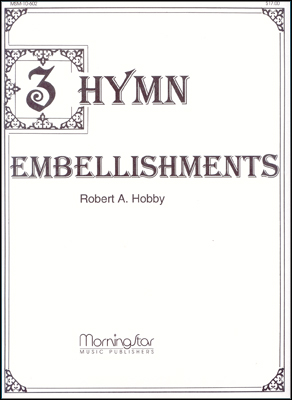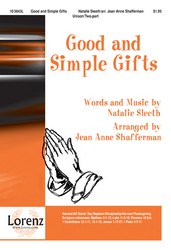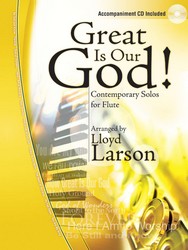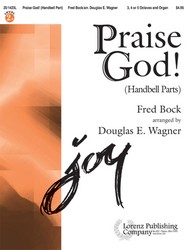- |
User Links
That man a godly life might live

That man a godly life might live
Translator: Richard Massie; Author: Martin LutherTune: DIES SIND DIE HEIL'GEN
Published in 11 hymnals
Printable scores: PDF, MusicXMLAudio files: MIDI
Representative Text
1 That man a godly life might live,
God did these Ten Commandments give
By His true servant Moses, high
Upon the Mount Sinai.
Have mercy, Lord!
2 I am thy God and Lord alone,
No other God before Me own;
Put thy whole confidence in Me
And love Me e’er cordially.
Have mercy, Lord!
3 By idle word and speech profane
Take not My holy name in vain
And praise but that as good and true
Which I Myself say and do.
Have mercy, Lord!
4 Hallow the day which God hath blest
That thou and all thy house may rest;
Keep hand and heart from labor free
That God may so work in thee.
Have mercy, Lord!
5 Give to thy parents honor due,
Be dutiful, and loving, too,
And help them when their strength decays;
So shalt thou have length of days.
Have mercy, Lord!
6 In sinful wrath thou shalt not kill
Nor hate nor render ill for ill;
Be patient and of gentle mood,
And to thy foe do thou good.
Have mercy, Lord!
7 Be faithful to thy marriage vows,
Thy heart give only to thy spouse;
Thy life keep pure, and lest thou sin,
Use temperance and discipline.
Have mercy, Lord!
8 Steal not; all usury abhor
Nor wring their life-blood from the poor,
But open wide thy loving hand
To all the poor in the land.
Have mercy, Lord!
9 Bear not false witness nor belie
Thy neighbor by foul calumny.
Defend his innocence from blame;
With charity hide his shame.
Have mercy, Lord!
10 Thy neighbor’s house desire thou not,
His wife, nor aught that he hath got,
But wish that his such good may be
As thy heart doth wish for thee.
Have mercy, Lord!
11 God these commandments gave therein
To show thee, child of man, thy sin
And make thee also well perceive
How man unto God should live.
Have mercy, Lord!
12 Help us, Lord Jesus Christ, for we
A mediator have in Thee.
Our works cannot salvation gain;
They merit but endless pain.
Have mercy, Lord!
Amen.
Source: The Lutheran Hymnal #287
Translator: Richard Massie
Massie, Richard, eldest son of the Rev. R. Massie, of Goddington, Cheshire, and Rector of Eccleston, was born at Chester, June 18, 1800, and resides at Pulford Hall, Coddington. Mr. Massie published a translation of Martin Luther’s Spiritual Songs, London, 1854. His Lyra Domestica, 1st series, London, 1860, contains translations of the 1st Series of Spitta's Psalter und Harfe. In 1864 he published vol. ii., containing translations of Spitta's 2nd Series, together with an Appendix of translations of German hymns by various authors. He also contributed many translations of German hymns to Mercer's Church Psalter & Hymn Book; to Reid's British Herald; to the Day of Rest, &c. He died Mar. 11,1887. -- John Julian, Di… Go to person page >Author: Martin Luther
 Luther, Martin, born at Eisleben, Nov. 10, 1483; entered the University of Erfurt, 1501 (B.A. 1502, M.A.. 1503); became an Augustinian monk, 1505; ordained priest, 1507; appointed Professor at the University of Wittenberg, 1508, and in 1512 D.D.; published his 95 Theses, 1517; and burnt the Papal Bull which had condemned them, 1520; attended the Diet of Worms, 1521; translated the Bible into German, 1521-34; and died at Eisleben, Feb. 18, 1546. The details of his life and of his work as a reformer are accessible to English readers in a great variety of forms. Luther had a huge influence on German hymnody.
i. Hymn Books.
1. Ellich cristlich lider Lobgesang un Psalm. Wittenberg, 1524. [Hamburg Library.] This contains 8 German h… Go to person page >
Luther, Martin, born at Eisleben, Nov. 10, 1483; entered the University of Erfurt, 1501 (B.A. 1502, M.A.. 1503); became an Augustinian monk, 1505; ordained priest, 1507; appointed Professor at the University of Wittenberg, 1508, and in 1512 D.D.; published his 95 Theses, 1517; and burnt the Papal Bull which had condemned them, 1520; attended the Diet of Worms, 1521; translated the Bible into German, 1521-34; and died at Eisleben, Feb. 18, 1546. The details of his life and of his work as a reformer are accessible to English readers in a great variety of forms. Luther had a huge influence on German hymnody.
i. Hymn Books.
1. Ellich cristlich lider Lobgesang un Psalm. Wittenberg, 1524. [Hamburg Library.] This contains 8 German h… Go to person page >Text Information
| First Line: | That man a godly life might live |
| Original Language: | German |
| Translator: | Richard Massie |
| Author: | Martin Luther |
| Language: | English |
| Refrain First Line: | Have mercy, Lord |
| Copyright: | Public Domain |
Notes
Dies sind die heilgen zehn Gebot. M. Luther. [Ten Commandments.] After the 13th century, the Ten Commandments began to be used in Germany at the confessional, and for the instruction of children, and in later times on pilgrimages and as an introduction to the Litany during Passiontide. Luther's catechetical, metrical setting 1st appeared in Eyn Enchiridion, Erfurt, 1524, and thence in Wackernagel, iii. p. 15, in 12 stanzas of 4 lines, each stanza ending with "Kyriolys." Included in Schircks's edition of Luther ‘s Geistliche Lieder, 1854, p. 47, and as No. 364 in the Unverfälschter Liedersegen, 1851. The only translation in common use is:—
That men a godly life might live, in R. Massie's M. Luther's Spiritual Songs, 1854, p. 55, and thence, as No. 204, in the Ohio Lutheran Hymnal1880, and in Dr. Bacon, 1884, p. 28.
Other translations are:—(l) "These are the holy commaundements ten," by Bp. Coverdale, 1539 (Remains, 1846, p. 544). (2) " Moyses upon the Mont Sinay," in the Gude & Godlie Ballates (edition 1568, folio 5), edition 1868, p. 6. (3) "These are the holy ten Commands," as No. 433, in pt. i. of the Moravian Hymn Book, 1754. (4) "These are the holy commandments," by J. Anderson, 1846, p. 53 (1847, p. 69). (5.) "The Lord Himself from Sinai's hill,” by Dr. J. Hunt, 1853, p. 83. (6) “These are the holy ten Commands," by Dr. G. Macdonald in the Sunday Magazine, 1867, p. 571, thence, altered, in his Exotics, 1876, p. 84. [Rev. James Mearns, M.A.]
-- John Julian, Dictionary of Hymnology (1907)
Tune
DIES SIND DIE HEIL'GENOLD HUNDREDTH
This tune is likely the work of the composer named here, but has also been attributed to others as shown in the instances list below. According to the Handbook to the Baptist Hymnal (1992), Old 100th first appeared in the Genevan Psalter, and "the first half of the tune contains phrases which may ha…


 My Starred Hymns
My Starred Hymns






